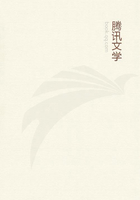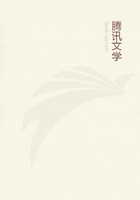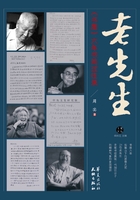Separation of Philosophy from other Allied Departments of Knowledge.
The history of the other Sciences, of culture and above all the history of art and of religion are, partly in regard to the elements contained in them, and partly to their particular objects, related to the history of Philosophy. It is through this relationship that the treatment of the history of Philosophy has been so confused. If it is to concern itself with the possession of culture generally and then with scientific culture, and then again with popular myths and the dogmas contained only in them, and yet farther with the religious reflections which are already thoughts of a speculative kind, and which make their appearance in them, no bounds are left to Philosophy at all. This is so, partly on account of the amount of material itself and the labour required in working it up and preparing it, and partly because it is in immediate connection with so much else. But the separation must not be made arbitrarily or as by chance, but must be derived from fundamental determinations. If we merely look at the name of Philosophy, all this matter will pertain to its history.
I shall speak of this material from three points of view, for three related aspects are to be eliminated and separated from Philosophy. The first of these is that which is generally considered to be the domain of science, and in which are sound the beginnings of understanding thought. The second region is that of mythology and religion; the relation of Philosophy to them seems often to be inimical both in the time of the Greeks and of the Christians. The third is that of philosophizing and the metaphysics of the understanding. While we distinguish what is related to Philosophy, we must also take note of the elements in this related matter which belong to the Notion of Philosophy, but which appear to us to be partially separated from it: and thus we may become acquainted with the Notion of Philosophy.
a. Relation of Philosophy to Scientific Knowledge.
Knowledge and thought certainly form the element of whatever has to do with particular sciences as they form the element of Philosophy; but their subjects are mainly finite subjects and appearance. A collection of facts known about this content is by its nature excluded from Philosophy: neither this content nor such a form has anything to do with it. But even if the sciences are systematic and contain universal principles and laws from which they proceed, they are still related to a limited circle of objects. The ultimate principles are assumed as are the objects themselves; that is, the outward experience or the feelings of the heart, natural or educated sense of right and duty, constitute the source from which they are created. Logic and the determinations and principles of thought in general are in their methods assumed.
The forms of thought or the points of view and principles which hold good in the sciences and constitute the ultimate support of all their matter, are not peculiar to them, but are common to the condition and culture of the time and of the people. This culture consists mainly in the general ideas and aims, in the whole extent of the particular intellectual powers dominating consciousness and life. Our consciousness has these ideas and allows them to be considered ultimate determinations;it makes use of them as guiding and connecting links, but does not know them and does not even make them the objects of its consideration. To give an abstract example, each act of consciousness has and requires the whole abstract thought-determination of Being. "The sun is in the heavens, the bunch of grapes is ripe," and so on into infinitude. Again, in a higher culture, such relations as those of cause and effect are involved, as also those of force and its manifestation. All its knowledge and ideas are permeated and governed by a metaphysic such as this; it is the net in which all the concrete matter which occupies mankind in action and in impulses, is grasped. But this web and its knots in our ordinary consciousness are sunk into a manifold material, for it contains the objects and interests which we know and which we have before us. These common threads are not drawn up and made explicitly the objects of our reflection.
We Germans seldom now count general scientific knowledge as Philosophy. And yet traces of this are found, as for instance, in the fact that the philosophic Faculty contains all the Sciences which have not as their immediate aim the Church and State. In connection with this, the significance of the name of philosophy, which is even now an important matter of discussion in England, comes in question. Natural Sciences are in England called Philosophy. A "Philosophic Journal" in England, edited by Thompson, treats of Chemistry, Agriculture, Manuring, Husbandry, Technology, like Hermbst?dt's Journal, and gives inventions connected therewith. The English call physical instruments, such as the barometer and thermometer, philosophical instruments. Theories too, and especially morality and the moral sciences, which are derived from the feelings of the human heart or from experience, are called Philosophy, and finally this is also so with the theories and principles of Political Economy. And thus at least in England, is the name of Philosophy respected. Some time ago a banquet took place under the presidency of Lord Liverpool, at which the minister Canning was also present. The latter in returning thanks congratulated England in having philosophic principles of government there brought into operation. There, at least, Philosophy is no by-word.















